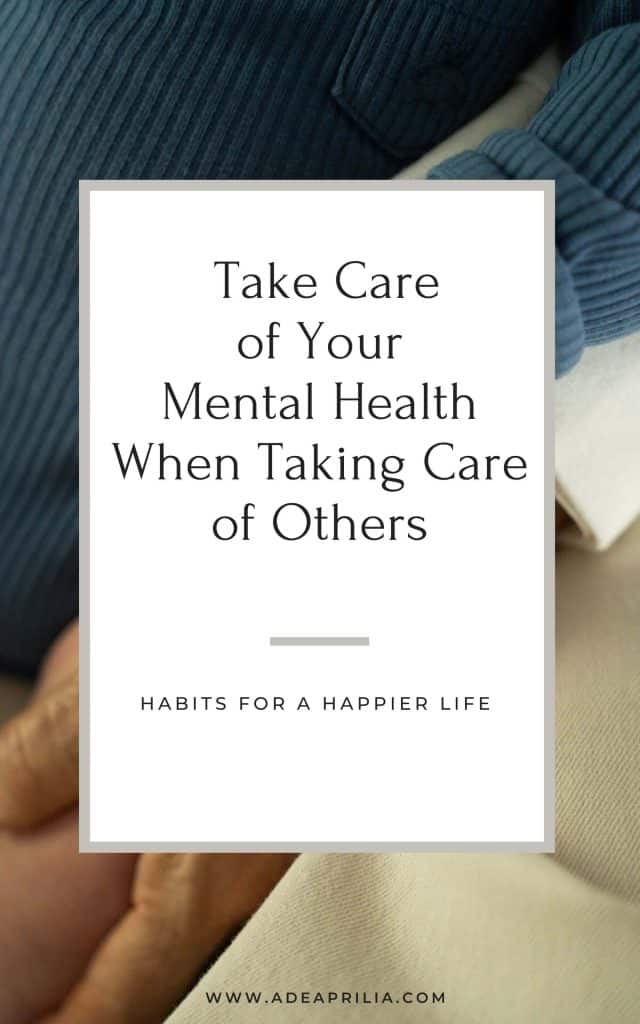
Last Updated on November 18, 2025 by Ade Aprilia
This post may contain affiliate links. If you make a purchase, I’ll receive a commission. Disclosure
As a parent or caregiver, one of the last things you think about is yourself. After all, there are groceries to buy, meals to make, appointments to schedule, work, and on and on. It never ends. Even so, you need to find realistic ways to take care of yourself, and especially your mental health, so you can continue caring for others who rely on you while living your life.
READY TO LOVE YOURSELF?
Check out my free guided audio to get started on how to release emotions painlessly on the spot!

Look for Inspiration and Guidance
If you are deep in the trenches of daily care and constant worry for someone dealing with mental health concerns or are just responsible for another life, you may feel alone. While you know others are going through things, as well, sometimes it does not seem that way.
Look to speakers and authors for inspiration on how they have worked their way through the proverbial trenches. Read books, such as “Be There – My Lived Experience with My Sister’s Bipolar Disorder,” to find inspiration in another person’s experiences. Learning about someone else’s intimate moments dealing with similar problems will help bolster your spirits while giving you understanding and clarity on complex issues.
It is Important to Ask for Help
Asking for help does not mean one thing. Help can come to you in a variety of ways and from multiple sources. Perhaps you need help picking up your children from school while you attend to your sibling’s mental health crisis. Maybe your grass is too long, and a kindly neighbor can save you from an HOA fine by mowing it for you. There are endless ways to need help when you are a caregiver, but it becomes difficult to ask.
Before you give up on asking for help, check in with yourself. Would you help a friend or neighbor in their time of need if you had the time, skill set, or resources to do so? More than likely, your answer is yes. Asking for help does not mean you are relying on someone else to do your work for you; it means you need help and are brave enough to ask for it. That is a form of mental wellness and self-care.
Watch this video for tips on how to become more comfortable asking for help.
Find a Support Group
You have probably heard of people attending support groups for several reasons, but if you have not attended one yourself, you may not understand the power they hold. A support group specific to your current concerns will prove invaluable in many ways.
Not only can you feel comfortable discussing what you are dealing with in the company of others who know exactly what you are talking about without giving generic platitudes, but you can also be free to complain. As a caregiver, you are told to deal with it, get over it, or just take care of it, but are never allowed to gripe about it. Sometimes, that is just what you need. A support group can be a safe space to let loose on your feelings with others who truly understand.
Being a caregiver in any capacity requires toughness and resolve you may not realize you have. It also means finding ways to take care of your mental health and well-being throughout your journey. Find your helpers and others who understand what you are going through.
Now you.
Are you interested in releasing to live in the now and create the life you adore? Are you ready to let go of the feeling of burnout and overwhelmed? Let me know in the comment below.
SAVE THIS PIN!
Did you find this post useful, inspiring? Save THIS PIN to your board on Pinterest!




Leave a Reply